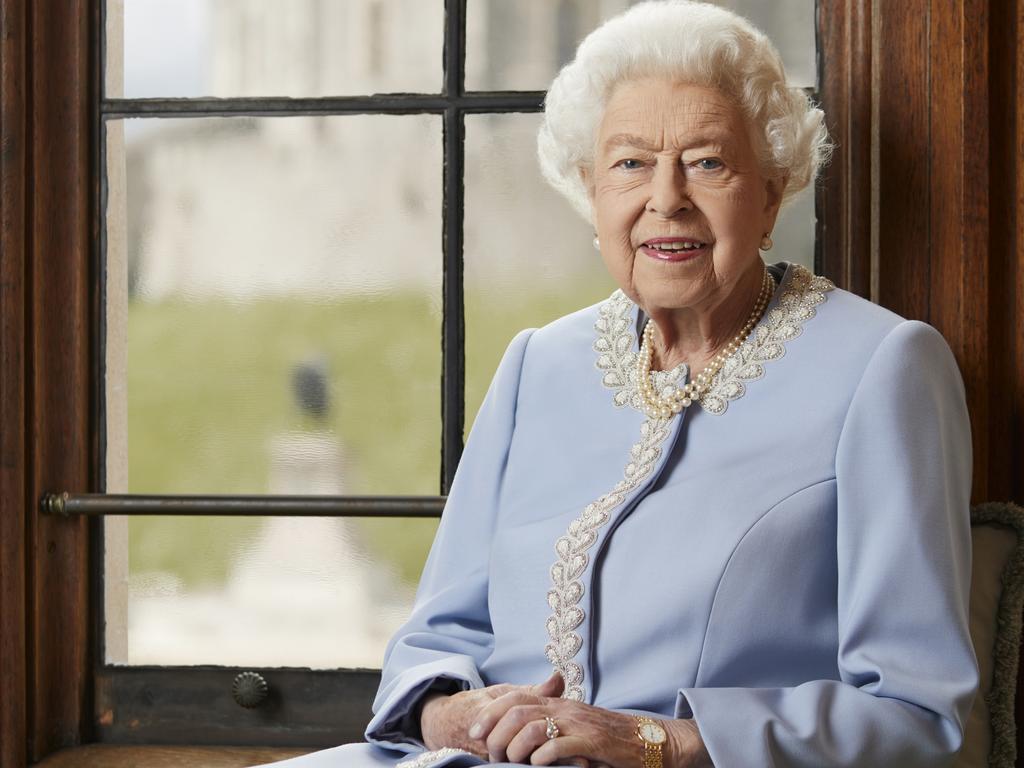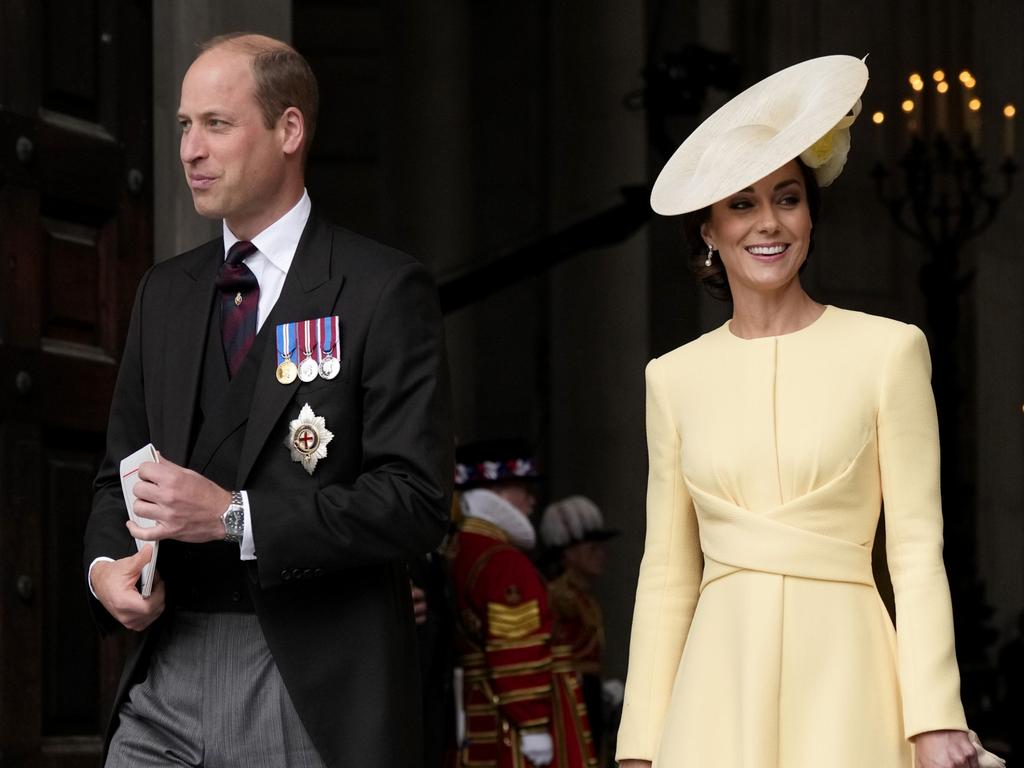The Queen is known for her self-control – a quality lacking in Britain

Fate, as it were, had thrust upon her a duty to perform, whether she would or no, and she determined to do it. Her devotion to that duty has been absolute and it has required the exercise of the utmost self-control. Another foreign dictator to meet! Another power station to open! Another tedious and platitudinous speech to read! How many of us could have lasted the course? Most of us would have lost our temper on the first day of such an existence, let alone after 70 years of it. But by not claiming any remarkable qualities of her own, the Queen has become remarkable.

Needless to say, devotion to duty, self-control and absence of self-importance are not exactly the qualities most in evidence in the general population these days. And I think it fair to say that, in the course of the Queen’s long reign, mass psychology has changed enormously within her realm, such that the past really is another country where they felt and thought differently.
This is only to be expected, no doubt, over so long a period of time. The Britons of the end of Queen Victoria’s reign were very different from those at its beginning: the world of The Pickwick Papers was very different from that of The Ballad of Reading Gaol. And Elizabeth’s reign has been even longer than Victoria’s, which at one time was regarded as having been of almost unnatural length.
Change, of course, can be for good or ill. In addition, change has a value in itself for those of restless disposition, as most of us now are. Once the desire for change for its own sake sets in, it tends to accelerate. Those who call themselves progressives could probably be more accurately designated as changeists.
Some of the change in the psychology of the people during Elizabeth’s reign has been for the better. The casual disdain, dismissal or hatred of people of different races has, if not disappeared entirely, declined markedly. (Interestingly, the Queen behaved from the first with perfect grace towards those of different race, unlike her people.)
But there is no disguising the fact that her virtues, which were once those admired by and practised by a large part of the population, now seem as old-fashioned and irredeemably lost as, say, the divination of the future by examination of chickens’ entrails.
Let us take the quality of self-control as an example. In the 70 years of her reign, her people have gone from being the most self-controlled people in Europe to being the least self-controlled people in Europe, universally and rightly despised wherever they congregate in large numbers.

The current travails of Boris Johnson’s administration over what is now known as Partygate, in which senior government advisers and officials broke the stringent rules that they had imposed on the rest of the country, can be interpreted as symptomatic of the general unwillingness or inability of the population to control itself. True, by the standards of orgies in world history, what went on at Number 10 was pretty tame and even dull, but these are not the standards we expect to measure our rulers by. The Queen managed to keep to the Covid rules for the funeral of her husband of 70 years, but the upper echelons of our civil service could not refrain long from behaving like the patrons of some of the pubs of more ill-repute in my market town.
The general loss of self-control is evident in small but prevalent ways. When you travel in Britain, you realise that a significant proportion of the population cannot tell the difference between a grass verge and a litter bin: it rids itself of the packaging of its constant refreshment as a cow relieves itself in a field. (True, there is another part of the population that knows that litter bins have something to do with litter, but do not make the final connection, and leaves its litter on the ground around the litter bin rather than in it.) The result is that the country is now more littered than any other country in the Western world, at least any that is known to me.
On long-distance trains there is usually a quiet carriage where people are asked not to use their telephones or to talk. Of course, such a request cannot be enforced and has no legal standing. Again, a significant part of the population, and not only of the lowest social class (which cannot afford to travel on trains), find its impossible to comply with the request, and if asked to do so by others in the carriage reacts as if it were being oppressed and subjected to arbitrary power, indeed often ignoring the request and carrying on.
The sound of young British people enjoying themselves is, to me, terrifying and indistinguishable from that of a violent altercation. Indeed, in a hotel in Manchester I was once woken at about two in the morning by the typical sound of young British people drunkenly enjoying themselves in the street below my bedroom. In fact, they were murdering someone.

Self-importance is at the heart of the inability of the population to comply with the unwritten rules of conduct that ease social life. If a rule is unenforceable, the population considers that it has a right, and sometimes almost a duty, to break it. (Is not the term transgressive now one of approbation in intellectual circles?) In such a situation, it is hardly surprising that there is a kind of meta-loss of self-control. Not only is self-control lost, but there is no awareness that it should be exercised, and comes to be seen as a bad thing in itself, a treason to the self that can only result in psychological trouble later on if not immediately.
Thus the population (I speak grosso modo, of course) has become emotionally incontinent, from having been stoical and sparing in its expression of feeling. After the death of Princess Diana, the Queen was bullied by the media of mass communication, responding to popular demand, into expressing sorrow or grief. This episode demonstrated a great loss of the population’s psychological and moral understanding since 1952 when the Queen ascended the throne: for either she felt grief, in which case she was entitled to her privacy, or she did not, in which case the population was in effect demanding to be lied to, as no doubt it lies to itself about its own emotions, the difference between true and false emotion being erased once emotional incontinence takes hold. Subtlety of thought and feeling makes way for crudity, which is now the hallmark of so much of daily life in Britain.
In fact, vulgarity has become a unifying ideology in Britain during the Queen’s reign, almost a marker of political rectitude. What was regarded as a vice at its beginning has come to be regarded as a virtue. For example, no work of serious literature is now complete without resort to a certain verb or one of its forms, use of which demonstrates that the writer is a man or woman of the people (perhaps not a very flattering tribute to the said people), but which was almost unthinkable at the beginning of Elizabeth’s reign. Is this a manifestation of increased freedom or of the advance of crudity, or perhaps of both? At any rate, it is a reminder that the exercise of freedom without the exercise of self-control is not aesthetically pleasing in its results.
Theodore Dalrymple is the author of more than 30 books, including Grief and Other Stories (New English Review Press).







The secret of Queen Elizabeth II’s success as monarch and head of state for 70 years is a certain kind of modesty. Despite having lived in material grandeur all her life, despite having consorted with the great ones of the earth, despite for decades having been deferred to by almost everyone around her, she has always conducted herself as if she knew that her good fortune (if always having to be on one’s best behaviour counts as good fortune) was not the consequence of any personal merit of her own, but rather that of chance.